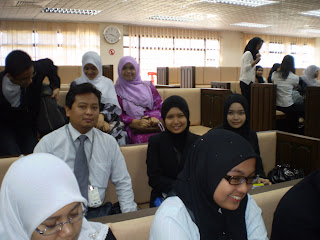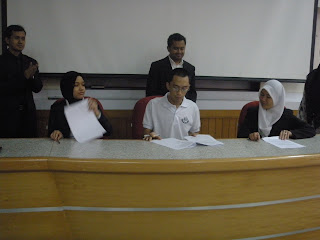Unity Through Law
Featured Posts
 Cash-Out Refinance For many, their homes are just not dwellings that protect them against rain, sun, and wind. But they are piggy banks, which can be used to raise some urgent money, even if the home still lays collateral...
Cash-Out Refinance For many, their homes are just not dwellings that protect them against rain, sun, and wind. But they are piggy banks, which can be used to raise some urgent money, even if the home still lays collateral...
Palm’s latest model, new handheld in a long time. Palm’s latest model, the TX, is its most ambitious new handheld in a long time. This isn’t because it’s full of cutting-edge features. It certainly is not. However, very few mid-range models have...
An image in a post Lorem ipsum dolor sit amet, consectetuer adipiscing elit. Quisque sed felis. Aliquam sit amet felis. Mauris semper, velit semper laoreet dictum, quam diam dictum urna, nec placerat elit nisl in quam. Etiam...
Home Purchase Loan We all dream to own a home, at some point in our lives. In fact, this is a major driving force or one of the goals we have ahead while working day and night and saving a good share of the earnings every...
Tweet Tweet
- Network :






Sunday, July 26, 2009
Differences Between Islamic Banking and Conventional
The foundation of Islamic bank is based on the Islamic faith and must stay within the limits of Islamic Law or the Shariah in all of its actions and deeds. The original meaning of the Arabic word Shariah is 'the way to the source of life' and is now used to refer to legal system in keeping with the code of behaviour called for by the Holly Qur'an (Koran). Amongst the governing principles of an Islamic bank are :
* The absence of interest-based (riba) transactions;
* The avoidance of economic activities involving oppression (zulm)
* The avoidance of economic activities involving speculation (gharar);
* The introduction of an Islamic tax, zakat;
* The discouragement of the production of goods and services which contradict the Islamic value (haram)
On the other hand, conventional banking is essentially based on the debtor-creditor relationship between the depositors and the bank on one hand, and between the borrowers and the bank on the other. Interest is considered to be the price of credit, reflecting the opportunity cost of money.
Islamic law considers a loan to be given or taken, free of charge, to meet any contingency. Thus in Islamic Banking, the creditor should not take advantage of the borrower. When money is lent out on the basis of interest, more often that it leads to some kind of injustice. The first Islamic principle underlying for such kind of transactions is "deal not unjustly, and ye shall not be dealt with unjustly" [2:279] which explain why commercial banking in an Islamic framework is not based on the debtor-creditor relationship.
The other principle pertaining to financial transactions in Islam is that there should not be any reward without taking a risk. This principle is applicable to both labor and capital. As no payment is allowed for labor, unless it is applied to work, there is no reward for capital unless it is exposed to business risk.
Thus, financial intermediation in an Islamic framework has been developed on the basis of the above-mentioned principles. Consequently financial relationships in Islam have been participatory in nature.
Lastly, for the interest of the readers, the unique features of the conventional banking and Islamic banking are shown in terms of a box diagram as shown below:-
Conventional Banks Islamic Banks
1. The functions and operating modes of conventional banks are based on fully manmade principles.
1. The functions and operating modes of Islamic banks are based on the principles of Islamic Shariah.
2. The investor is assured of a predetermined rate of interest. 2. In contrast, it promotes risk sharing between provider of capital (investor) and the user of funds (entrepreneur).
3. It aims at maximizing profit without any restriction. 3. It also aims at maximizing profit but subject to Shariah restrictions.
4. It does not deal with Zakat. 4. In the modern Islamic banking system, it has become one of the service-oriented functions of the Islamic banks to be a Zakat Collection Centre and they also pay out their Zakat.
5. Lending money and getting it back with compounding interest is the fundamental function of the conventional banks. 5. Participation in partnership business is the fundamental function of the Islamic banks. So we have to understand our customer's business very well.
6. It can charge additional money (penalty and compounded interest) in case of defaulters. 6. The Islamic banks have no provision to charge any extra money from the defaulters. Only small amount of compensation and these proceeds is given to charity. Rebates are give for early settlement at the Bank's discretion.
7. Very often it results in the bank's own interest becoming prominent. It makes no effort to ensure growth with equity. 7. It gives due importance to the public interest. Its ultimate aim is to ensure growth with equity.
8. For interest-based commercial banks, borrowing from the money market is relatively easier. 8. For the Islamic banks, it must be based on a Shariah approved underlying transaction.
9. Since income from the advances is fixed, it gives little importance to developing expertise in project appraisal and evaluations. 9. Since it shares profit and loss, the Islamic banks pay greater attention to developing project appraisal and evaluations.
10. The conventional banks give greater emphasis on credit-worthiness of the clients. 10. The Islamic banks, on the other hand, give greater emphasis on the viability of the projects.
11. The status of a conventional bank, in relation to its clients, is that of creditor and debtors. 11. The status of Islamic bank in relation to its clients is that of partners, investors and trader, buyer and seller.
12. A conventional bank has to guarantee all its deposits. 12. Islamic bank can only guarantee deposits for deposit account, which is based on the principle of al-wadiah, thus the depositors are guaranteed repayment of their funds, however if the account is based on the mudarabah concept, client have to share in a loss position..
Sunday, July 19, 2009
Friday, July 17, 2009
Annual Dinner & Excellent Student Award



On the 3rd of April 2009, FLAIR held an Excellent Student Award Ceremony and Dinner
At Permai Inn Kuala Terengganu. The ceremony was attended by all law students and was inaugurated by YBhg. Dato’ Prof. Dr. Alias Bin Daud, The Vice Chancellor of UDM. We also had the honour of receiving The YBhg. Prof. Afandi, The Deputy Vice Chancellor (Academic and International), The Head Registrar of UDM, The Head Legal Committee of Terengganu, The Deans of faculty in UDM and also Madam Noraida Binti Harun (Ummi), The Deputy Dean of FUHA and now as a Dean. Also present were lecturers, faculty staffs, MT and FLAIRSOC Excos.
The tentative of the program is as followed:
1.Speech from Deputy President of FLAIRSOC, part 6 representative student and Deputy Dean of FLAIRSOC.
2.Inaugural speech from The Vice Chancellor of UDM.
3.Dean List Award for the diploma and degree student.
4.Award - giving for Most Famous Lecturer, Most Famous Mentor and Most Famous Staff of FLAIRSOC.
5.Special award for Mr. and Mrs. Smart Student and Lucky Draw.
6.Performance from representative of degree part 2,4 and 6 and diploma part 2.
7.Photography session.
The purpose for this ceremony is to appreciate the excellent student in semester 1 2008/2009, to celebrate part 6 diploma students and as an annual program of FLAIRSOC. It was handled as a whole by part 4 diploma student and by the assistance of Student University Association FLAIRSOC.
On a visit to Kuala Terengganu Court Complex




On 15th of March 2009, the degree students and diploma students from part 2 paid a visit to Kuala Terengganu Court Complex. This visit was organized by Seranta Bureau of FLAIRSOC. Some of the activities were:
1.General explanation from Court Senior Judge
2.A visit to BBG
3.Attend the session of case judgment.
National Client Counseling Competition
1.Waafini Pardi
2.Fatin Zahirah
This was for the purpose of searching for the best team to represent Malaysia to Louis Braun International Client Counseling which will take place at The Arizona University, United States of America.
Asian Law Association ( ALSA )
Phillip Jessup Mooting Competition
Introduction of Faculty
In 2006, a history was created when the Malaysian Ministry of Higher Education (MOHE) gave the approval for KUSZA General Study School to offer L.L.B. (Hons). On March 2007, FUHA - Fajulti Undang-Undang dan Hubungan Antarabangsa, was established and was given the responsibility to continue both programs. FUHA also plans to offer new courses for the programs in law and in the international relations field in the near future. Catered programs:
1.LLB (Hons)
2.Diploma In Law
About The Blog
Today
FLAIRSOC

- FLAIRSOC UNISZA
- Kuala Terengganu, Terengganu Darul Iman, Malaysia
- FLAIRSOC is known as FACULTY OF LAW AND INTERNATIONAL RELATIONS STUDENT's SOCIETY. All the Diploma in Law (DIL) and Degree in Law (LLB)student will automatically become a member of FLAIRSOC.
Us

The Activities
-
▼
2009
(32)
-
▼
July
(13)
- Differences Between Islamic Banking and Conventional
- Hari Mesra Siswa - The New Student Orientation
- FLAIRSOC LOGO
- FLAIRSOC ORGANISATION CHART
- CERAMAH AUKU
- Annual Dinner & Excellent Student Award
- On a visit to Kuala Terengganu Court Complex
- National Client Counseling Competition
- National Client Counseling Competition
- Asian Law Student Association (ALSA)
- Asian Law Association ( ALSA )
- Phillip Jessup Mooting Competition
- Introduction of Faculty
-
▼
July
(13)
Lets Us Chat
Followers
FLAIRIANS
Do visit These
Visitor / s
Copyright © FLAIRSOC (Faculty of Law And International Relations) UNISZA. All rights reserved.
Blogger template created by Templates Block | DigiSecrets.
Wordpress theme by SkinPress



































